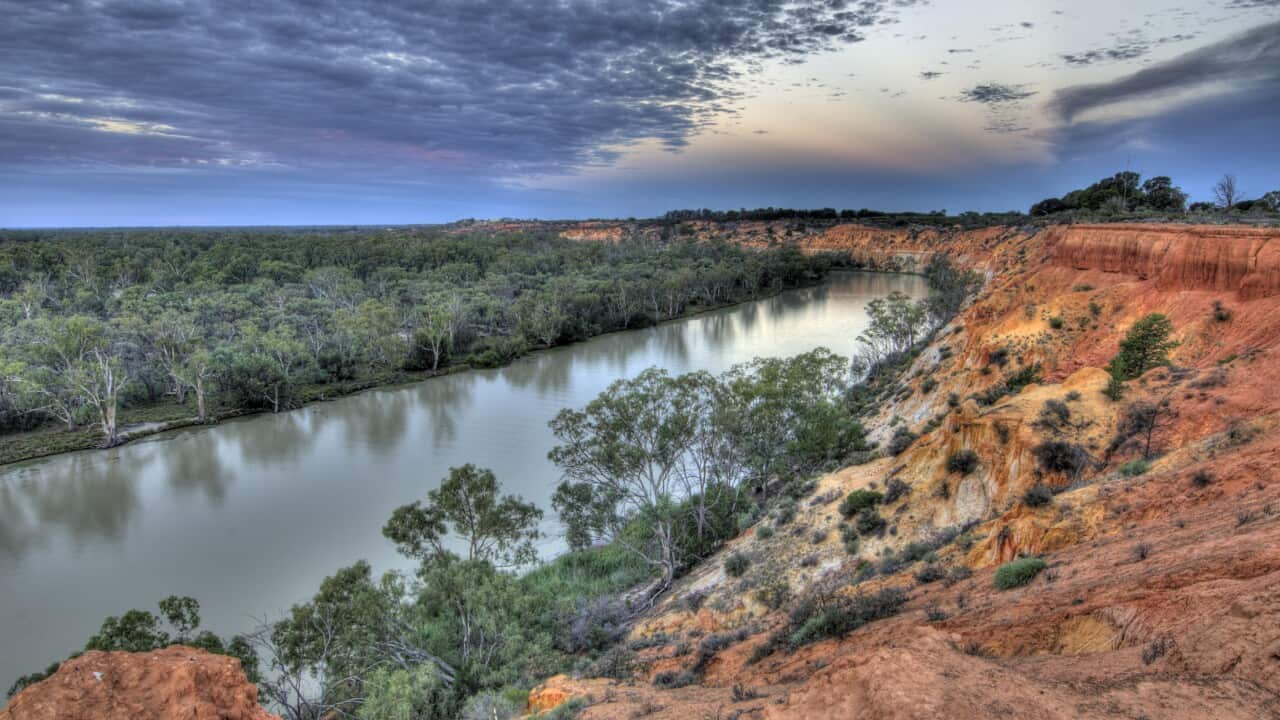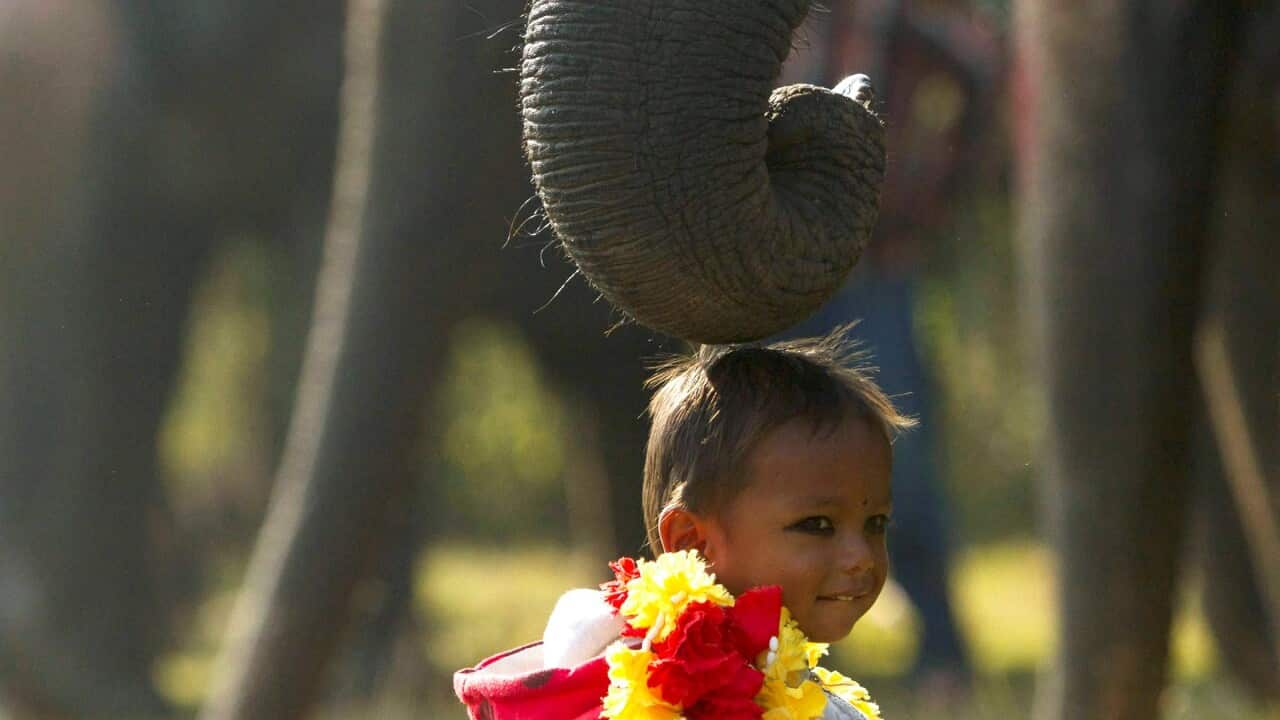DOWNLOAD the script in Italian and English side by side.
English
In northeast Tasmania, muttonbirding, or the muttonbird harvest, is an Aboriginal cultural practice on Flinders Island.
From March 27th to April 30th, people with a hunting licence are allowed to kill the short-tailed shearwaters during daytime.
While the traditional practice has brought joy and cultural values to locals, some are worried the exercise will die out.
Brett Newell is a passionate muttonbirder who's been taking part for almost 50 years.
For him, muttonbirding used to mean reunion with his family and friends.
But he notices it's getting harder to get people to come to the island for the hunting season.
(We've) "Been doing it a while. All my family, when we did it commercially, it was a big family affair. Not so much now. One - the old fellas have all passed (died). There's only a few of us left in my mob to carry the tradition on. We still go every year, whether we catch one bird or 100 birds. It's just more about the laughs and jokes and the memories."
Besides the declining number of participants, the health of the birds has also become a concern for muttonbirders.
Reen Burgess has been muttonbirding since she was 11.
She's heard about the spread of H5N1 bird flu in Australia and New Zealand, and worries the birds could catch the virus.
And she says there's more than one threat against the birds that will eventually affect the hunting.
"A lot of marine debris. The birds are filled up with plastic which is affecting if they can lay chicks, if they can feed their chicks, things like that. We have got some threats incoming - industrialisation of the areas around with the wind farm and overfishing the krill and the wilder ocean when they are on their journey. They've got quite a bit coming out of it I think, the future of birding is a bit daunting."
Ms Burgess is now working with other muttonbirders to monitor the birds' health, especially if they catch the avian flu.
"So we've been talking to the Tasmanian government around what we can do to prepare ourselves, just consulting with the birders and wider community about what to look out for, some of the signs and the symptoms of infected birds, just to be prepared the best we can."
Tasmania's Department of Natural Resources and Environment says it's monitoring wildlife for bird flu to enable early detection of the virus, if it reach Tasmania.
A spokesperson told SBS News if bird flu is confirmed in muttonbirds, it will affect the cultural and commercial harvest, but said it wasn’t possible to say how at this early stage.
Rebecca Digney is the manager at the Aboriginal Land Council of Tasmania.
She says the First Nations community is monitoring the bird flu closely.
"The Aboriginal community has been approaching the government and talking about the prospect of compensation and what that would look like should bird flu hit and decimate the industry, and those conversations are still ongoing."
Italian
Italiano
Nel nord-est della Tasmania, il muttonbirding, o la caccia alla berta codacorta è una pratica culturale aborigena che ha luogo nella Flinders Island.
Dal 27 marzo al 30 aprile, le persone in possesso di una licenza di caccia sono autorizzate a uccidere le berte codacorta durante il giorno.
Sebbene questa pratica tradizionale abbia portato gioia e valori culturali agli abitanti del luogo, alcuni temono che la pratica si estingua.
Brett Newell è un appassionato di muttonbirding che la pratica da quasi 50 anni.
Per lui, la caccia alla berta codacorta significava riunirsi con la famiglia e gli amici.
Ma ha notato che è sempre più difficile convincere la gente a venire sull'isola per la stagione di caccia.
(We've) "Been doing it a while. All my family, when we did it commercially, it was a big family affair. Not so much now. One - the old fellas have all passed (died). There's only a few of us left in my mob to carry the tradition on. We still go every year, whether we catch one bird or 100 birds. It's just more about the laughs and jokes and the memories."
Oltre al calo del numero di partecipanti, anche la salute degli uccelli è diventata una preoccupazione per gli appassionati di muttonbirding.
Reen Burgess pratica il muttonbirding da quando aveva 11 anni.
Ha sentito parlare della diffusione dell'influenza aviaria H5N1 in Australia e Nuova Zelanda e teme che gli uccelli possano contrarre il virus.
E dice che c'è più di una minaccia contro gli uccelli che finirà per influenzare la caccia.
"A lot of marine debris. The birds are filled up with plastic which is affecting if they can lay chicks, if they can feed their chicks, things like that. We have got some threats incoming - industrialisation of the areas around with the wind farm and overfishing the krill and the wilder ocean when they are on their journey. They've got quite a bit coming out of it I think, the future of birding is a bit daunting."
Burgess sta ora collaborando con altri allevatori di uccelli da carne per monitorare la salute dei volatili, soprattutto se dovessero contrarre l'influenza aviaria.
"So we've been talking to the Tasmanian government around what we can do to prepare ourselves, just consulting with the birders and wider community about what to look out for, some of the signs and the symptoms of infected birds, just to be prepared the best we can."
Il Dipartimento per le Risorse Naturali e l'Ambiente della Tasmania afferma che sta monitorando la fauna selvatica per l'influenza aviaria, per consentire un'individuazione precoce del virus, se dovesse raggiungere la Tasmania.
Un portavoce ha dichiarato a SBS News che se l'influenza aviaria venisse confermata negli uccelli da carne, avrebbe ripercussioni sul raccolto culturale e commerciale, ma non è possibile dire in che modo in questa fase iniziale.
Rebecca Digney è la responsabile dell'Aboriginal Land Council of Tasmania.
Come spiega, la comunità delle Prime Nazioni sta monitorando da vicino l'influenza aviaria.
"The Aboriginal community has been approaching the government and talking about the prospect of compensation and what that would look like should bird flu hit and decimate the industry, and those conversations are still ongoing."
Report by SBS News
Listen to SBS Italian every day from 8 am to 10 am.
Follow us on Facebook and Instagram.




